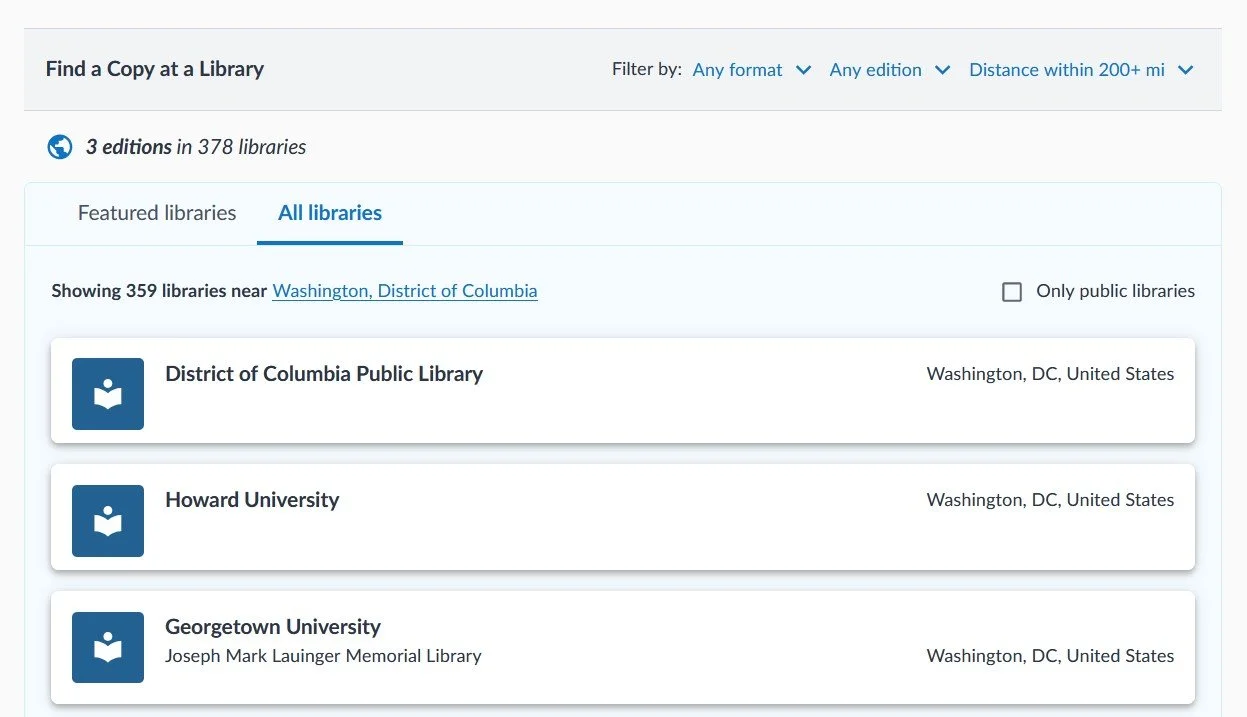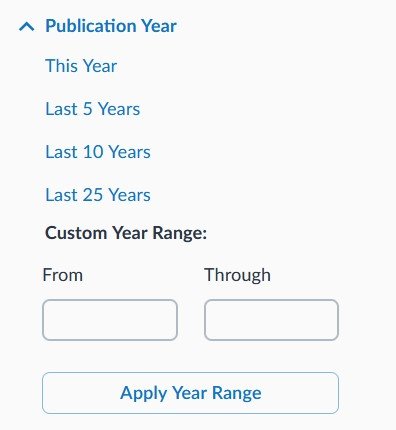How to Use Worldcat to Do Research for a Book
There is a tool every researcher should use early and often: WorldCat. WorldCat allows you to search the library catalogs of thousands of member libraries around the world, all at once!
You can find books, ebooks, audiobooks, research articles, theses and dissertations, archival materials such as manuscripts, maps, art, digitized photos, and more.
As of April 2022, there were 526 million records on WorldCat. By December 2023, 30,000 libraries in 100+ countries were represented on WorldCat. Every second, a new WorldCat record is added. I’ve found it to be comprehensive and fairly easy to use.
Accessing, Searching, and Using WorldCat
Visit WorldCat.org or access WorldCat through your local library—with or without a WorldCat account.
Enter a search term (hint: try putting it in quotes for more accurate results), and click “Search.”
For advanced search techniques in WorldCat, click here. You can search only for a certain format. You can search by keyword, title, author, subject, and other fields.
I did a WorldCat search for “African Americans” “Revolution” and found what I wanted. Look carefully at WorldCat search results, as there may be duplicate listings for books. Here’s what I selected and what it looks like on WorldCat.org:
You’ll see a list of libraries that have the item you’re interested in, organized by how near the libraries are to you. (FYI, our hypothetical researcher is based in Washington, DC.)
You’ll also see links to ebook or digital versions of the items. Some of these links will be available to the general public; some will be available in your library or by logging in with your library membership; and some won’t be available to the general public.
In theory, clicking on “Open Access” narrows down the results to the items that are available to the general public, but I’ve found it’s not an exhaustive list.
You can also see links to purchase the book. That, too, may not be an exhaustive list.
When I find a book on WorldCat.org, I like to “view all editions.” That helps me to see more easily what formats are available and if the book has been reprinted.
WorldCat.org vs. Library Access
If you use WorldCat while logged into your library’s research databases or from your library, you can “Ask a Librarian” and access other services from your library, such as Interlibrary Loan.
The number of search results will be the same whether you search online or through your library, but those results will filter and display a little differently, i.e., filtering by publication year (library version pictured).
When you access WorldCat through your library, you can tick a box to show only the results that are available at your library or library system. If you are at the library and need something right then and there, if your query is more general, or if you have access to a major university library, you may like this option.
Citations and Free Tools
A WorldCat record includes the option to generate citations for the displayed work. Whether you access WorldCat.org or WorldCat through your library, the look and options will differ. In general, your library will have more citation styles available.
Either way, you’ll be able to copy and paste the citation (as I like to do) or download the citation to a citation manager such as EndNote, RefWorks, or EasyBib. Unfortunately, you’ll likely have to proofread and fix it.
When you access WorldCat.org and sign up for a free membership, you can create lists, post reviews, and record factual information about items you’ve found or used.
WorldCat lists enable you to group items you’ve found, to keep track of those items, and to share those items. It’s sort of like a Goodreads list. You can add up to 500 items to a WorldCat list.
You might create a list and add or delete items depending on whether or not you’ve used them or found them useful. I’ve had clients share these lists with me so we can add and delete together.
It’s also possible to see and post reviews and provide factual information—like notes and tags—about items you’ve found or used. I see few people using these features.
WorldCat Works. Try It!
All in all, WorldCat is a helpful tool, and it can change the way you approach research. If this sounds like an advertisement, it isn’t. WorldCat is a nonprofit organization, and I’m neither an official nor an unofficial spokesperson! Happy sleuthing!




